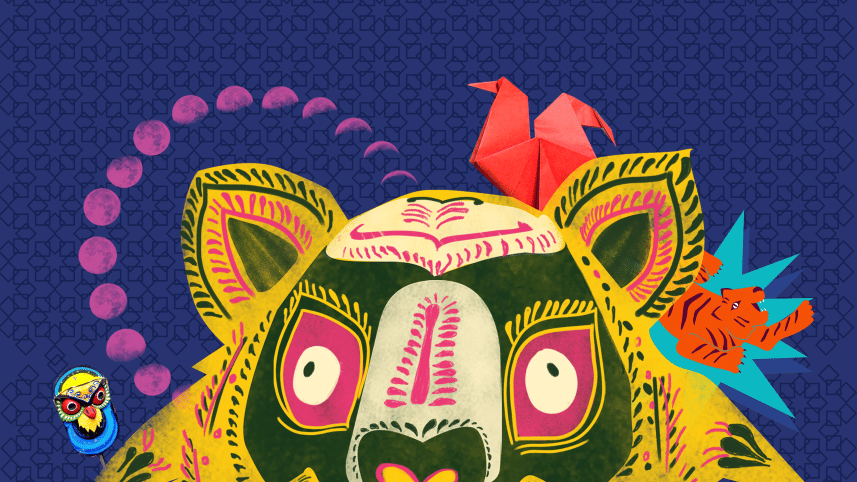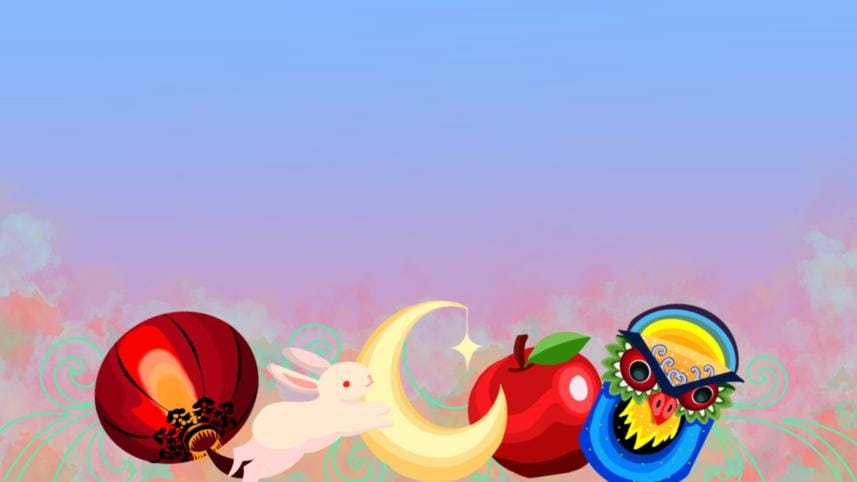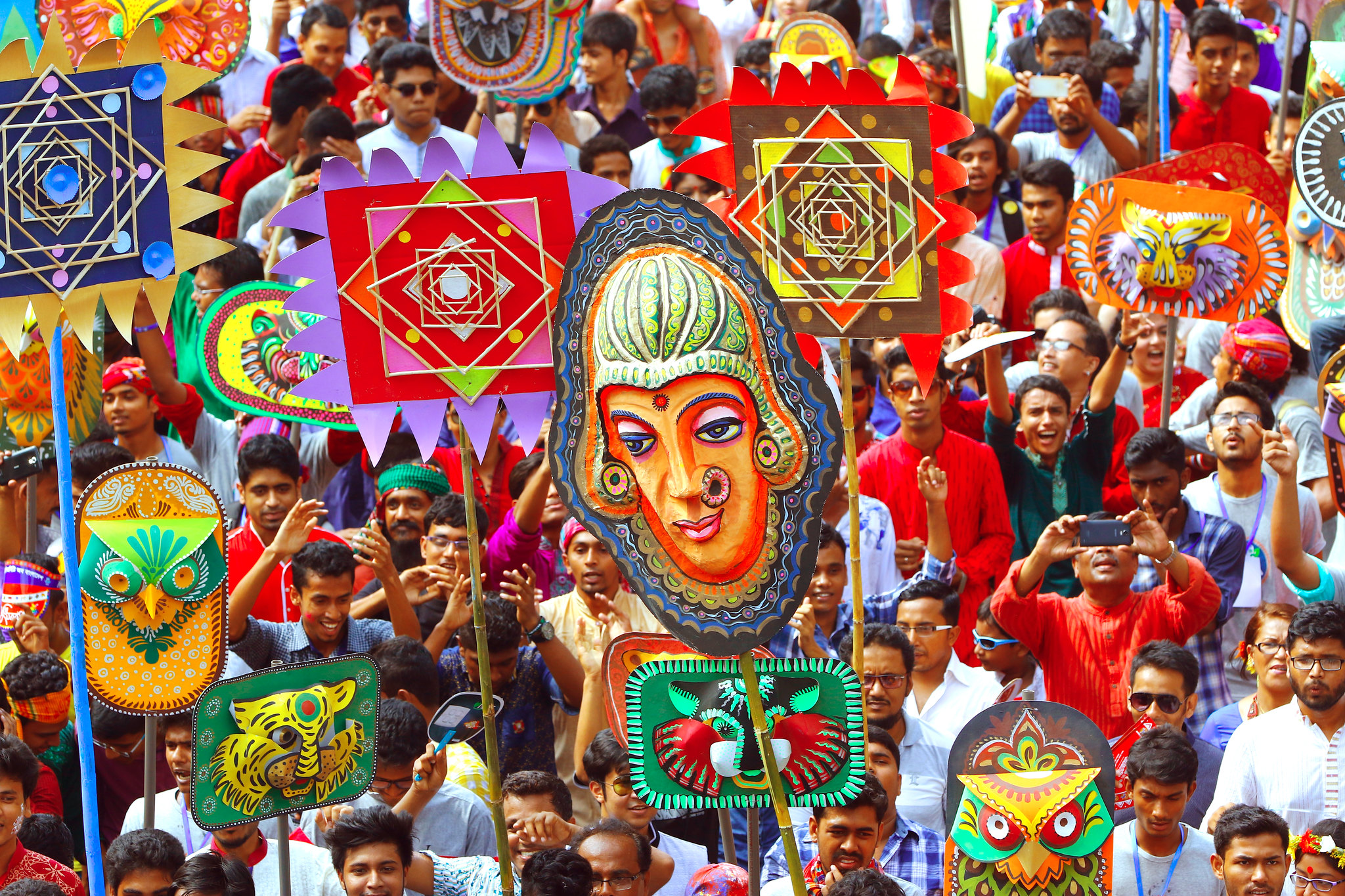New Year’s celebration across cultures

We don't know what to expect from 2023. We don't know if the important board exams will go well. We don't know if we will be accepted into our dream universities. We don't know if this is the year when we will end up actually going on that trip with friends that we've spent so many years just planning, or if we will just plan this year too. This could be the year that certain person finally notices us, or this year, we could be approached by someone we did not expect, but makes us so happy.
The one thing we do know for sure about the year 2023 is how the world will welcome it. There will be fireworks all over the world on the night of December 31. In Dhaka, some people will get in trouble for it. As the clock strikes midnight, a giant ball will drop in Times Square, New York.
In today's globalised world, we all celebrate the New Year of the Gregorian calendar the same. We also feel the same anxieties, and wish we had more to show for the year that passed us by. In Bangladesh, the anxiety mostly affects the youth, maybe because most of our parents had never heard of the concept of new year's resolutions or "new year, new me."

They have, however, heard Esho he Boishakh, which talks about leaving all the negativities of the previous year behind. They are just happy to leave a worn-out year behind.
How we celebrate the new year and the connotations around it in our particular culture does a great deal to shape how we view and feel about the new year, and therefore the passing of time.
The same concept of the new year is interpreted and celebrated differently across cultures. Given the power that it has, it is worth looking at the most vibrant and unique new year's celebrations around the globe.
In stark contrast to the robust celebrations of the new year of the Gregorian calendar, the Arabic or Hijri new year, based on the Lunar calendar is observed through mourning and reflection.
An important anniversary marks the start of a new year – the migration of Prophet Muhammad (PBUH) from Mecca to Madina. That migration, also known as Hijrah, was an attempt to escape religious persecution, and the date is widely seen as the beginning of Islam as an organised religion and political institution.
No big celebration takes place in most Muslim-majority nations, countries such as the United Arab Emirates, Indonesia and Saudi Arabia have a public holiday, which is spent as a quiet day at home with family.

The month of Muharram is seen as sacred and symbolic of new beginnings as it comes right after the month in which Hajj took place. Muslims believe that after completing Hajj, all of their sins are wiped out. On the day of the New Year in Jeddah, a city in Saudi Arabia, drinking a glass of milk is traditional to bring purity to the year ahead. Molokhia, a traditional jute leaf dish, is eaten to keep the year ahead "green".
The Chinese New Year is a celebration of hope. The holiday falls on the second new moon after the winter solstice on December 21. It is spent doing everything that is believed to bring you good fortune and prosperity in the new year. It has mythical roots, and is drenched in symbolism.
Festivities marking the new year according to the lunar calendar are not limited to China. Countries like Japan, South Korea, and Vietnam use the same calendar to mark important holidays, including the new year. The Chinese celebrations are the largest, most widely known and global, with festivities ranging across China Towns all over the globe.
People decorate their houses with red for good luck and children are given money in bright red envelopes, symbolising bad luck being driven away and good fortune being passed on. Over the span of two weeks, celebrations at home include eating symbolic dishes believed to bring good luck and prayers offered to ancestors for health, success, fortune and a better year. The entire community engage in large outdoor parades with loud music, massive red puppet animals, most popularly a dancing dragon, and fireworks.
Each year is associated with one of the 12 animals in the Chinese zodiac, and people are believed to have specific characteristics that align with the animal of the year they were born in. Celebrations end with the lantern festival, which marks the full moon.
Elements of Chinese New Year celebrations do a great deal to remind us of how our fortune is largely out of our control, and all we can do is hope and pray to the gods, to our ancestors, or just the goodwill of the universe.
The globalisation of the celebration of the Chinese New Year also sources from xenophobia faced by Chinese immigrants. The oldest celebration of Lunar New Year in America, dating back to the 1860s, is in San Francisco's Chinatown. Chinese immigrants in California had become targets of discrimination and violence. Wanting to share their culture as a way to build connection, they chose the American format of a parade to showcase Chinese traditions. People of Asian descent welcome the New Year and invite visitors from all over the world to participate in the celebrations.
Rosh Hashanah, most prominently celebrated in Israel, and in smaller scales amongst Jewish communities in other countries, means "head of the year" in Hebrew. This is the day the world is considered to have been created. The exact date of Rosh Hashanah varies every year since it is based on the Hebrew Calendar, where it begins on the first day of the seventh month. Rosh Hashanah is almost always in September or October.
The two-day holiday is considered a time to reflect and repent in anticipation of the coming year. It traditionally calls on people to consider how they might have failed or fallen short in the past year – and how to improve and grow in the coming year.
This is symbolised by one of Rosh Hashanah's most iconic traditions, Taschlich, in which participants symbolically cast off their sins by throwing morsels of bread into a body of running water.
Rosh Hashanah is followed by Ten Days of Repentance, which lasts from the start of Rosh Hashanah until Yom Kippur, the holiest day in Judaism. These days are a time of atonement and reflection, and the repentance of sins to be inscribed positively in the Book of Life by God.
Therefore, instead of just celebrating the end of a year or welcoming a new year, Rosh Hashanah acts as an opportunity to make the previous year right by repenting and asking for forgiveness. The lengthy reflection and self-judgement help people enter the new year with more moral clarity.
Last but not the least is our favourite – Pahela Baishakh celebrations. Pahela Baishakh, celebrated on April 14 or 15 on the Gregorian calendar, is not just celebrated in Bangladesh and West Bengal. It is also celebrated in Bengali communities in the other Indian states like Assam, Tripura, Jharkhand and Odisha and all over India as well where the Bengali community is. It is celebrated on the same day as the new year's days of many Southern Asian calendars.
The celebration of Pahela Baishakh traces back to the Mughal emperor Akbar's rule in this region, when the Bengali calendar was crafted so that the time for tax collection would coincide with the spring harvest.
Presently in Bangladesh, however, all official business is done according to the Gregorian calendar, and the robust Pahela Baishakh celebrations across religious boundaries is a celebration of our shared rich regional heritage.
Baishakhi fairs and cultural programmes with folk singing and dancing are held in cities, in cultural hubs and in institutions. Traditional Bengali cuisine is enjoyed and people dress in commonly red and white attire.
In the 1950s and 1960s, the festival became a popular means of expressing cultural pride and heritage among the Bangladeshi as they resisted Pakistani rule.
The distinct quality of Pahela Baishakh as a New Year's celebration is that it serves as a celebration of the rich and vibrant Bengali culture, heritage and rural life – a lot of which has been lost to modern reforms – as well as its introduction to the urban youth. This region of the world hosts people of a variety of faiths, and Pahela Baishakh is a celebration of their common heritage.
Regardless of differences in how they celebrate, human beings across the globe love the idea of a new start, with new opportunity to own the year. However, time and life, is continuous and nonlinear. Things that you do that make you proud and fulfilled do not have to be divided evenly between the years. The existence of time means that it will pass, and the passing of time adds to our wisdom and experience.
Amrin's confusion is at its peak, she's been screaming internally for a while now. Send help at amrinrafa@gmail.com




 For all latest news, follow The Daily Star's Google News channel.
For all latest news, follow The Daily Star's Google News channel. 
Comments